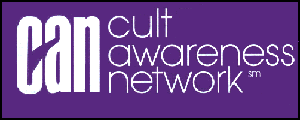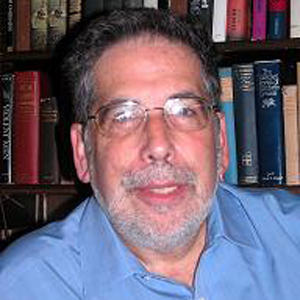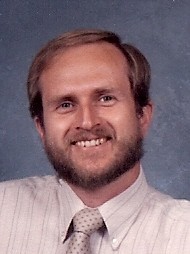Related Research Articles
Deprogramming is a controversial tactic that seeks to dissuade someone from "strongly held convictions" such as religious beliefs. Deprogramming purports to assist a person who holds a particular belief system—of a kind considered harmful by those initiating the deprogramming—to change those beliefs and sever connections to the group associated with them. Typically, people identifying themselves as deprogrammers are hired by a person's relatives, often parents of adult children. The subject of the deprogramming is usually forced to undergo the procedure, which might last days or weeks, against their will.
Brainwashing, also known as mind control, menticide, coercive persuasion, thought control, thought reform, and forced re-education, is the concept that the human mind can be altered or controlled by psychological techniques. Brainwashing is said to reduce its subject's ability to think critically or independently, to allow the introduction of new, unwanted thoughts and ideas into their minds, as well as to change their attitudes, values, and beliefs.
Twelve-step programs are international mutual aid programs supporting recovery from substance addictions, behavioral addictions and compulsions. Developed in the 1930s, the first twelve-step program, Alcoholics Anonymous (AA), founded by Bill Wilson and Bob Smith, aided its membership to overcome alcoholism. Since that time dozens of other organizations have been derived from AA's approach to address problems as varied as drug addiction, compulsive gambling, sex, and overeating. All twelve-step programs utilize a version of AA's suggested twelve steps first published in the 1939 book Alcoholics Anonymous: The Story of How More Than One Hundred Men Have Recovered from Alcoholism.
The term large-group awareness training (LGAT) refers to activities - usually offered by groups with links to the human potential movement - which claim to increase self-awareness and to bring about desirable transformations in individuals' personal lives. LGATs are unconventional; they often take place over several days, and may compromise participants' mental wellbeing.

The Cult Awareness Network (CAN) was an anti-cult organization founded by deprogrammer Ted Patrick that provided information on groups it considered "cults", as well as support and referrals to deprogrammers. It operated from the mid 1970s to the mid 1990s in the United States.

Steven Alan Hassan is an American writer and mental health counselor who specializes in the area of cults and new religious movements. He worked as a deprogrammer in the late 1970s, but since then has advocated a non-coercive form of exit counseling.
A cult is a group which is typically led by a charismatic and self-appointed leader, who tightly controls its members, requiring unwavering devotion to a set of beliefs and practices which are considered deviant. It is in some contexts a pejorative term, also used for a new religious movement or other social group which is defined by its unusual religious, spiritual, or philosophical beliefs and rituals, or its common interest in a particular person, object, or goal. This sense of the term is weakly defined – having divergent definitions both in popular culture and academia – and has also been an ongoing source of contention among scholars across several fields of study.
The anti-cult movement, abbreviated ACM and also known as the countercult movement, consists of various governmental and non-governmental organizations and individuals that seek to raise awareness of cults, uncover coercive practices used to attract and retain members, and help those who have become involved with harmful cult practices.

Recovery from Cults: Help for Victims of Psychological and Spiritual Abuse a 1995 book about counselling and therapeutic approaches for individuals exposed to coercive or harmful practices in cults. It is edited by Michael Langone, director of the anti-cult non-profit organization International Cultic Studies Association, and is published by W. W. Norton & Company. The book examines coercive cult practices through theories of social influence, cognitive psychology, and psychotherapy.
Galen G. Kelly is a "deprogrammer", associated with the Cult Awareness Network. He served as CAN's "security advisor." Prior to this he was a director for the Citizens' Freedom Foundation, a precursor to the CAN. Kelly was raised in Accord, New York.
Michael D. Langone is an American counseling psychologist who specializes in research about cultic groups and psychological manipulation. He is executive director of the International Cultic Studies Association, and founding editor of the journal Cultic Studies Journal, later the Cultic Studies Review.

Benjamin David Zablocki was an American professor of sociology at Rutgers University where he taught sociology of religion and social psychology. He published widely on the subject of charismatic religious movements, cults, and brainwashing.

Captivity narratives are usually stories of people captured by enemies whom they consider uncivilized, or whose beliefs and customs they oppose. The best-known captivity narratives in North America are those concerning Europeans and Americans taken as captives and held by the indigenous peoples of North America. These narratives have had an enduring place in literature, history, ethnography, and the study of Native peoples.
The academic study of new religious movements is known as new religions studies (NRS). The study draws from the disciplines of anthropology, psychiatry, history, psychology, sociology, religious studies, and theology. Eileen Barker noted that there are five sources of information on new religious movements (NRMs): the information provided by such groups themselves, that provided by ex-members as well as the friends and relatives of members, organizations that collect information on NRMs, the mainstream media, and academics studying such phenomena.

Captive Hearts, Captive Minds: Freedom and Recovery from Cults and Other Abusive Relationships is a study of cults and abusive relationships by Madeleine Landau Tobias, Janja Lalich, Ph.D., and Michael Langone. It was published by Hunter House Publishers in 1994. In 2006, the book was reissued as Take Back Your Life: Recovering from Cults and Abusive Relationships.

Combating Cult Mind Control is a nonfiction book by Steven Hassan, first published in 1988. The book presents itself as a guide to resisting the mind control practices of destructive cults, and focuses on the research of Margaret Singer and Robert Lifton as well as the cognitive dissonance theory of Leon Festinger. Hassan published a revised edition in 2015 which updated information on organizations that he alleges practice mind control and use social media to increase their influence.
Janja Lalich is an American sociologist and writer. Lalich is best known as a foremost expert on cults and coercion, charismatic authority, power relations, ideology and social control. She is a professor emerita of sociology at the California State University, Chico.

Paul R. Martin (1946–2009) was a psychotherapist, licensed clinical psychologist, author, pastor, and director of the Wellspring Retreat and Resource Center in Ohio. He also worked in private practice in Athens, Ohio. Martin taught psychology, psychopharmacology, and the Biblical basis of behavior for five years at Geneva College, where he was a member of the department of psychology.
Wellspring Retreat and Resource Center is a Christian countercult movement-affiliated residential counseling center claiming to specialize in the treatment of individuals who they evaluate as "having been abused in relationships, cults, situations of trauma, and by destructive therapeutic alliances resulting in emotional betrayal and/or physical harm". Founded in 1986 by Dr. Paul R. Martin and his wife Barbara, it is located in Albany, Ohio.
Harold L. Busséll is a pastor and author. He has a M.A. in Psychology from Santa Clara University and a Doctorate of Divinity from Andover Newton Theological Seminary. Between 1968 and 1970 he served with Teen Challenge Paris, a Christian outreach program that works with drug addicts in Paris, France. His book Unholy Devotion – Why Cults Lure Christians, talks about his experiences while in Europe. Busséll has written, "my wife and I were involved with an Evangelical youth mission based in Switzerland. We were with the group only six weeks, but it was almost seven years before I had overcome the psychological damage caused by their cult-like control and spiritualization... Questioning a leader was considered an act of rebellion against God and His chain of command." Busséll went on to become a pastor in Saratoga, California. He also served as one of the Deans at Gordon College. Serving as Senior Pastor from 1984 to 1996 at the First Congregational Church in Hamilton, Massachusetts, a mainline church affiliated with the United Church of Christ. The New York Times recognizes Busséll as an author who has written books about mind control and religious groups. Christianity Today noted Busséll as a pastor who has "experienced spiritual warfare." Paul R. Martin has noted Busséll's opinion on recovery from what they refer to as cults, that "a clear understanding of the gospel is the single most important issue in a cultist's recovery and future immunity from further cultic involvement."
References
- 1 2 3 Barker, Eileen, ed. (28 January 2013). Revisionism and diversification in new religious movements. Burlington: Ashgate. ISBN 9781409462323.
- ↑ Baker, Amy J.L. (17 April 2007). Adult children of parental alienation syndrome : breaking the ties that bind (1st ed.). New York: Norton. ISBN 978-0393705195.
- ↑ John Ferri, "'Hunger' group halted from entering schools," Toronto Star, 13 September 1986.
- ↑ Kristin Kloberdanz, "Cult Attraction," Book (May 2001).
- ↑ John W. Kennedy, "'Boston Movement' apologizes: Open letter prompts leaders of controversial church to promise reform," Christianity Today (2003).
- ↑ Michael Finkel, "Running like Hell," Women's Sports & Fitness (Cairo, Egypt) 3, no. 1 (1999).
- ↑ John Burke, "Group refutes 'cult' description," Sunday Tribune (Dublin, Ireland), 31 July 2005.
- ↑ Tanya Waterworth, "'Our members choose to be members,'" The Independent on Sunday (South Africa), 29 October 2011.
- ↑ Johnstone, Nick (December 12, 2004). "Beyond Belief". The Observer . London. Retrieved October 24, 2008.
- ↑ "Carol Giambalvo's Cult Information and Recovery". Carol Giambalvo's Cult Information and Recovery. Retrieved 2022-08-01.
- ↑ Katrina Onstad, "Room for Improvement: Never mind the cost, the butt-numbing chairs, the fluorescent lights or the taboo against bathroom breaks. For Landmark Corporation's thousands of true believers, this is the one self-help program that actually works. But can you really find happiness at a weekend seminar?", Toronto Life 37, no. 4 (April 2003).
- ↑ Dee J. Hall, "Church of Cult?: Some religious groups resemble mainstream Christian organizations, but their actions set them apart," Wisconsin State Journal (Madison, WI), 25 May 1997.